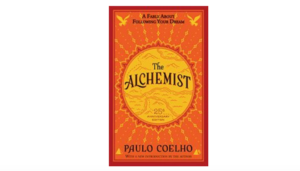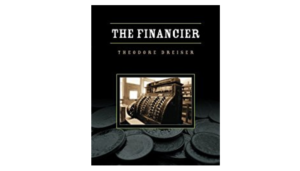In this book summary of Outliers by Malcolm Gladwell, you’ll find my notes, high-level ideas, valuable lessons, and important action steps.
Outliers Summary
There’s more that meets the eye when some successful person call themselves a “self-made man.”
For example, based on Canada’s January 1 age cut off for playing hockey, players born in January, February, and March have a physical maturity advantage over players born in the later months of the year. The bigger kids, who aren’t necessarily better, then get placed on better teams, with more coaching, and more practice. Over the years this compounds and makes a huge difference in hockey ability.
Passion, talent, and hard work are still the components of success, just most people forget there’s one more: circumstance (when you were born, where you were born, who your parents were).
Preparation is a far greater determinator of success than innate talent.
“Practice isn’t the thing you do once you’re good. It’s the thing you do that makes you good.”
Research suggests that it takes 10,000 hours to achieve mastery in anything and be one of the top performers in the world. This is true for everyone—even prodigies like Mozart, Michael Jordan, and Tiger Woods. (This is great news for those who hustle.)
The Beatles didn’t become the best because of solely pure talent. They became the best because of a ridiculous amount of practice—including playing 1,200 nights live before they had their first real success (most bands never play 1,200 times in their entire career).
While success does require the ingredients of talent and hard work, there is also another extremely important ingredient called opportunity. For example, Bill Gates and Steve Jobs were almost the exact perfect age someone would want to be during the computer revolution in 1975. Born any earlier or any later, and you may likely have never heard of their name.
Your IQ only matters up to a certain point. Someone who is a genius isn’t more likely to succeed than someone who is just smart.
“… and no one—not rock stars, not professional athletes, not software billionaires, and not even geniuses—ever makes it alone.” People learn how to navigate the world and authority from their parents and where they come from, not their IQ. This is why IQ doesn’t predict success.
Your previous great, great, great, great grandparents (for multiple centuries) have some affect on your behavior today.
Cultural legacies have a powerful influence on who people are and how successful they become. However, you can transform some cultural legacies of failure to success with the right understanding and deliberate changes.
“You master mathematics if you are willing to try.” Simply effort and hard work answers why Asians are so skilled at math. And this effort and hard work is ingrained in their cultural legacy (generations back to working in the rice fields).
One major setback of the American education system is the summer vacation, where other countries give their students less time off and the students perform better on global education tests.
To reach your full potential, you often have to shed some part of your identity and cultural legacy that’s holding you back.
Everyone deserves an opportunity at success if they are willing to put in the meaningful work. That’s where the world should head toward, not unfair opportunities based on birthdate, where you’re born, and your cultural legacy.
People’s success comes from both their own doing, as well as a web of advantages (deserved and undeserved) that life presents.
Mini Summary
The culture, people, and environment an individual is surrounded by has a significant influence on how successful they become, contrary to popular opinion that it’s all about the individual.
Seemingly everyone who has achieved massive success has put at least 10,000 hours into practicing—which also points toward the idea that talent is overrated.
Solely focusing on your skill and putting in deliberate practice is what sets the successful people apart from everyone else. You have to put in the work to compete with the best.
Three Favorite Quotes
“Success is a function of persistence and doggedness and the willingness to work hard for twenty-two minutes to make sense of something that most people would give up on after thirty seconds.”
“Those three things – autonomy, complexity, and a connection between effort and reward – are, most people will agree, the three qualities that work has to have if it is to be satisfying.”
“In fact, researchers have settled on what they believe is the magic number for true expertise: ten thousand hours.”
Action Steps For You
It’s simple: You need to put in the work.
Because you can’t control when and where you were born, your natural IQ, who you were born to, and the generations plus cultural legacy you come from.
You can control how much preparation you put into your craft.
Don’t call it quits at 40 hours a week. Work 80, 90, or 100 hours a week if you truly want to be special. (Now if you don’t want to be an outlier, then don’t put in that work. Know these action steps are for those who want to be great).
So while I enjoyed reading this book, it doesn’t change much for me or you. We need to continue to develop our craft and keep chipping away at those 10,000 hours.
Gladwell did a good job at changing the way we look at success. Though the formula to become a top achiever is still the same, put all the work and energy you can into one field and you’ll get results.
That’s the takeaway that’s going to leave you with the most tangible results. Focus on the thing that most people don’t want to do: hard work.
Lastly, after you put in the work and you do become successful, don’t be arrogant. Don’t think you did it all on your own like you’re some superhero, because you didn’t.
Instead, acknowledge the people and environment that helped you become who you are. This could be your parents, a friend, a favorite teacher, or where you grew up. Whatever it is, remember them and how they paved the path for your success.
Order Outliers
Or check out other book recommendations to become more successful.




Awesome Brian! I just read Blink by Malcolm Gladwell. I really enjoy how easy his books are to read and they definitely make you expand your thinking. Have you read Tipping Point or David and Goliath?
Gladwell has a great mind and a way for words, that’s for sure. No I haven’t but I want to! Good thing I’m reading a book a week so I have time to get to them.